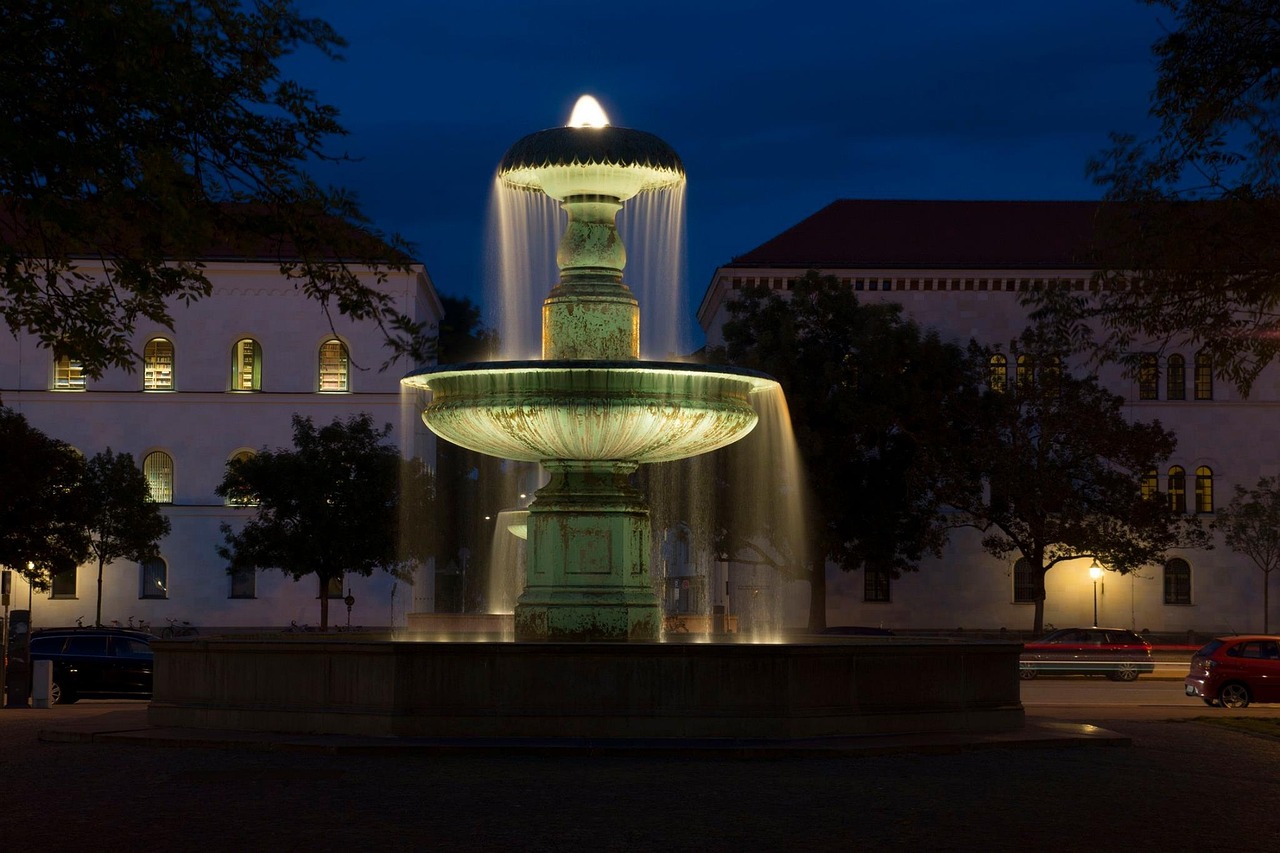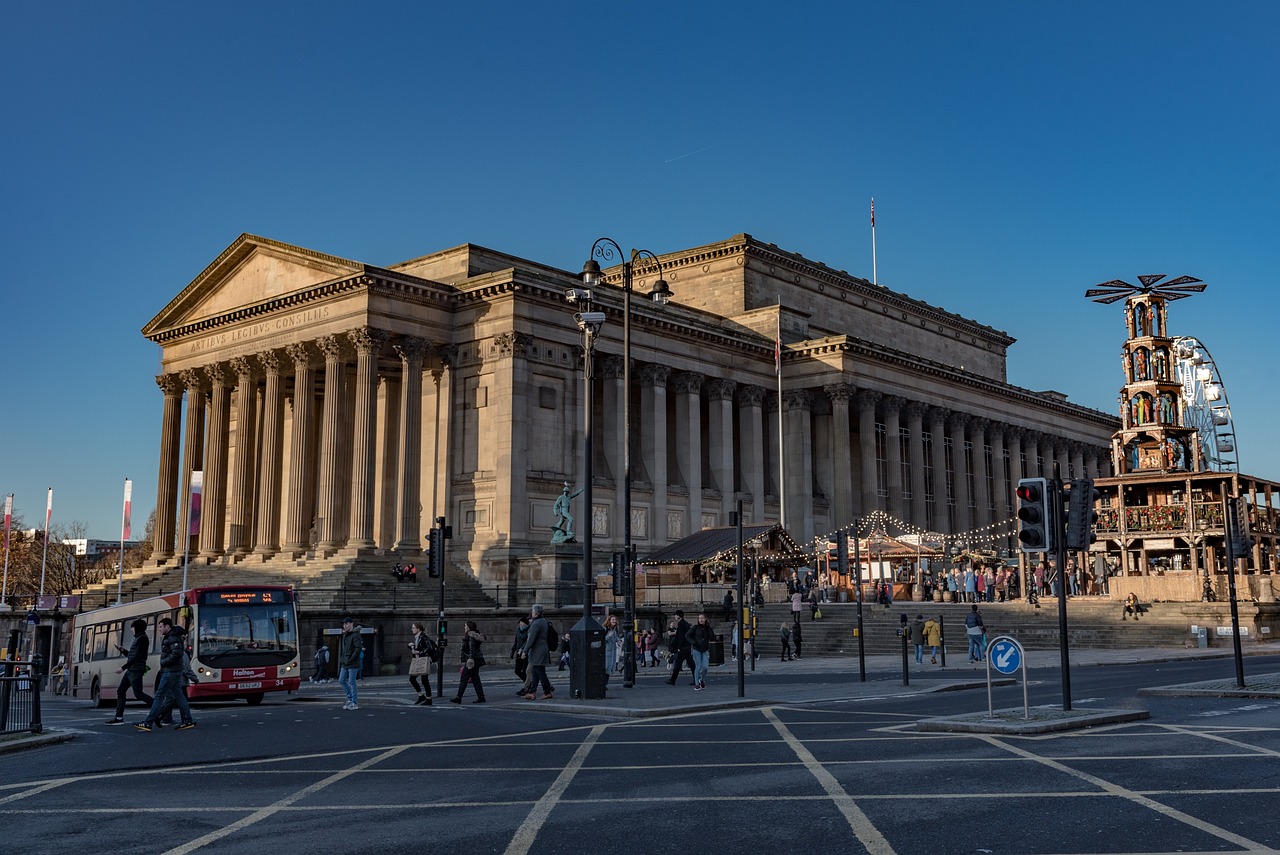Munich (München) is the capital and largest city in the state of Bavaria, located in the southeastern part of Germany. It is situated on the banks of the River Isar and is about 50 kilometers north of the Bavarian Alps. Munich is known for its rich cultural heritage, historic landmarks, and world-renowned beer culture. It is also a center for technology, science, and business, and is home to several major corporations, universities, and research institutions.
Short History
Munich has a long and fascinating history dating back to the Middle Ages. It was founded in 1158 by Henry the Lion, Duke of Saxony and Bavaria, and served as a stronghold for the ruling Wittelsbach family for over 700 years. Throughout its history, Munich has been a center for art, culture, and politics, and has seen many important events, including the birth of the Nazi Party and the Olympic Games of 1972. Today, Munich is a thriving city with a rich cultural heritage and a strong economy, and is a popular destination for tourists from around the world.
Architecture
The architecture of Munich is a blend of styles that reflect the city’s rich history and cultural heritage. Some of the most notable architectural landmarks in Munich include:
- Munich Residenz: This former royal palace was built in the 16th century and features a mix of Renaissance, Baroque, and Rococo styles.
- Frauenkirche: This Gothic-style cathedral is one of Munich’s most iconic landmarks, with its distinctive twin towers visible from many parts of the city.
- Neuschwanstein Castle: While not technically located in Munich, this stunning castle is a popular day trip destination from the city and is known for its fairytale-like appearance.
- Theatine Church: This Baroque-style church was built in the 17th century and is known for its striking yellow facade.
- Nymphenburg Palace: This beautiful Baroque-style palace was built in the 17th century as a summer residence for the Wittelsbach family.
- Allianz Arena: This modern stadium is home to the FC Bayern Munich soccer team and is known for its innovative exterior, which features a translucent shell that can be illuminated in different colors.
The architecture of Munich reflects the city’s long and fascinating history, with a mix of styles that range from Gothic and Baroque to modern and innovative.
Museums and Galleries
Munich is home to a wide variety of museums and galleries that showcase the city’s rich cultural heritage and artistic traditions. Here are some of the most interesting museums and galleries in Munich:
- Alte Pinakothek: This museum is home to one of the most important collections of European art from the 14th to 18th centuries, with works by artists such as Rubens, Rembrandt, and Botticelli.
- Neue Pinakothek: This museum features an impressive collection of 19th- and early 20th-century art, including works by Monet, van Gogh, and Klimt.
- Deutsches Museum: This museum is the world’s largest museum of science and technology, with exhibits on topics ranging from aerospace to telecommunications.
- Lenbachhaus: This museum is known for its collection of works by the Blaue Reiter group, a movement of German Expressionist artists that included Kandinsky and Franz Marc.
- Haus der Kunst: This museum features contemporary art exhibitions, as well as exhibits on modern and contemporary history and culture.
- Bavarian National Museum: This museum showcases the art and culture of Bavaria from the Middle Ages to the present day, with exhibits on everything from clothing to furniture.
The museums and galleries of Munich offer a fascinating glimpse into the city’s rich cultural heritage and artistic traditions. Whether you’re interested in classic art, modern design, or scientific innovation, there is something for everyone to enjoy in this vibrant and fascinating city.
Landmarks and Monuments
Munich is a city with a rich history and cultural heritage, and is home to many interesting landmarks and monuments. Here are some of the most notable:
- Marienplatz: This central square is the heart of Munich’s historic Old Town, and is home to the famous Glockenspiel, a clock tower that features moving figures and chimes.
- Nymphenburg Palace: This beautiful Baroque-style palace was built in the 17th century as a summer residence for the Wittelsbach family, and features stunning gardens and fountains.
- Viktualienmarkt: This lively outdoor market offers a wide variety of fresh produce, baked goods, and other local specialties, and is a popular spot for tourists and locals alike.
- Englischer Garten: This beautiful park is one of the largest urban parks in the world, and features a variety of outdoor activities, including biking, hiking, and surfing.
- Hofbräuhaus: This historic beer hall is one of Munich’s most famous landmarks, and is known for its lively atmosphere and traditional Bavarian cuisine and beer.
- Munich Residenz: This former royal palace is one of Munich’s most impressive architectural landmarks, and features a mix of Renaissance, Baroque, and Rococo styles.
The landmarks and monuments of Munich offer a fascinating glimpse into the city’s rich history and cultural heritage. Whether you’re interested in architecture, history, or local cuisine and beer, there is something for everyone to enjoy in this vibrant and fascinating city.
Parks and Green Spaces
Munich is a city that values green spaces and outdoor recreation, and is home to many beautiful parks and gardens. Here are some of the most notable:
- Englischer Garten: This beautiful park is one of the largest urban parks in the world, and features a variety of outdoor activities, including biking, hiking, and surfing.
- Olympiapark: This park was built for the 1972 Summer Olympics and features a variety of sports facilities, as well as a beautiful lake and stunning views of the city.
- Westpark: This park features beautiful gardens and fountains, as well as a large pond and walking trails.
- Botanischer Garten München-Nymphenburg: This botanical garden is home to a wide variety of plant species from around the world, as well as several greenhouses and a Japanese garden.
- Luitpoldpark: This park features a large open meadow, as well as a variety of walking and biking trails and a popular beer garden.
- Hofgarten: This historic park was once the private garden of the Bavarian royal family, and features beautiful landscaping and several historic monuments.
The parks and green spaces of Munich offer a wonderful respite from the hustle and bustle of city life, and are a great way to enjoy the outdoors and connect with nature. Whether you’re interested in sports, gardens, or simply relaxing in a beautiful setting, there is something for everyone to enjoy in Munich’s many parks and green spaces.
Shopping Districts
Munich is a great destination for shopping, with a variety of districts and neighborhoods offering everything from luxury fashion boutiques to traditional markets. Here are some of the most popular shopping areas in Munich:
- Maximilianstrasse: This upscale shopping street is home to many high-end fashion boutiques, as well as luxury hotels and restaurants.
- Marienplatz: This central square is home to many traditional markets and shops, selling everything from local crafts to food and drink.
- Theatinerstrasse: This stylish shopping street is known for its fashion boutiques and trendy cafes, as well as its beautiful Baroque architecture.
- Kaufingerstrasse: This pedestrian street is one of Munich’s busiest shopping areas, with a wide variety of shops and department stores offering everything from clothing to electronics.
- Viktualienmarkt: This lively outdoor market is a great place to shop for fresh produce, meat, and other local specialties, as well as flowers, souvenirs, and other items.
- Fünf Höfe: This stylish shopping complex features a mix of high-end fashion boutiques, art galleries, and restaurants, as well as a beautiful courtyard with a glass roof.
Munich offers a wide variety of shopping experiences, from traditional markets to upscale fashion boutiques. Whether you’re looking for luxury goods, local crafts, or fresh produce, there is something for everyone to enjoy in Munich’s many shopping districts and neighborhoods.
Food and Drink
Munich is known for its rich culinary traditions, with a variety of local specialties and regional dishes to try. Here are some foods and drinks you should definitely try when in Munich:
- Weisswurst: This traditional Bavarian breakfast sausage is typically served with sweet mustard and a soft pretzel.
- Brezen: These soft, chewy pretzels are a staple in Munich, and are often enjoyed with beer.
- Schweinshaxe: This roasted pork knuckle is a hearty and filling dish that is often served with sauerkraut and potato dumplings.
- Leberknödel Suppe: This soup features meat dumplings made from liver and served in a rich beef broth.
- Spätzle: This soft egg noodle dish is a popular side dish in Bavaria, often served with roasted meats or creamy sauces.
- Bier: Munich is famous for its beer culture, with several world-renowned breweries and beer halls. Try a local brew like Augustiner, Hofbräuhaus, or Paulaner.
- Glühwein: This warm, spiced wine is a popular drink during the colder months, especially during the Christmas markets.
- Apfelstrudel: This classic German dessert features warm, flaky pastry filled with sweet apples, cinnamon, and sugar.
Munich offers a variety of delicious foods and drinks to try, with a strong emphasis on local and regional specialties. Whether you’re a fan of hearty meat dishes or sweet pastries, there is something for everyone to enjoy in Munich’s rich culinary scene.
Transportation
Munich is a city with an excellent public transportation system, making it easy and convenient to get around. Here are some of the best ways to move around Munich:
- U-Bahn and S-Bahn: Munich has an extensive network of subway and commuter trains that connect the city and surrounding areas. The U-Bahn is the subway system that operates within the city limits, while the S-Bahn serves the larger metropolitan area.
- Tram: Munich also has a network of trams that run throughout the city, providing easy access to many popular destinations.
- Bus: The city has a comprehensive bus system, which is a great option for traveling to areas that are not served by the U-Bahn, S-Bahn, or tram.
- Bike: Munich is a bike-friendly city, with many dedicated bike lanes and bike-sharing programs available for residents and tourists.
- Walking: Many areas of Munich are easily accessible on foot, especially in the city center where many popular attractions are located.
- Taxi: Taxis are widely available in Munich, but can be more expensive than public transportation options.
Munich offers a variety of convenient and affordable ways to get around the city, whether you prefer to take public transportation, bike, or walk.
City Safety
Munich is generally considered a safe city, with a low crime rate and a strong police presence. However, as with any major city, there are still some risks to be aware of. Here are some tips to stay safe in Munich:
- Be aware of your surroundings: Stay alert and aware of your surroundings, especially in crowded areas or at night.
- Use common sense: Take precautions such as keeping your valuables close to you, not leaving your belongings unattended, and avoiding dark or isolated areas.
- Follow local laws and customs: Respect local laws and customs, and be aware of any cultural differences that may affect your behavior or interactions with others.
- Use public transportation wisely: Be aware of pickpocketing on crowded public transportation, and keep an eye on your belongings at all times.
- Take care when crossing the street: Look both ways before crossing the street, as drivers in Munich can be fast and aggressive.
Munich is a relatively safe city for tourists, but it’s always a good idea to stay alert and take common sense precautions to ensure a safe and enjoyable trip.
Expensive or Cheap
Munich is considered one of the more expensive cities in Germany, with prices generally higher than in other cities throughout the country. However, the cost of living can vary depending on your lifestyle and the activities you choose to engage in. Here are some factors that can affect the cost of living in Munich:
- Accommodation: Rent and housing costs in Munich are generally higher than in other cities in Germany, particularly in popular neighborhoods.
- Food and drink: Eating out and drinking in Munich can be expensive, particularly in trendy areas or in tourist hotspots. However, there are also many affordable options available, especially in less touristy neighborhoods.
- Transportation: Public transportation in Munich is relatively affordable, with a variety of ticket options available to suit different budgets.
- Entertainment: Entertainment options in Munich can be pricey, particularly for activities such as attending concerts or visiting museums.
While Munich can be more expensive than other German cities, it’s still possible to live and travel on a budget with some careful planning and budgeting.
Date Ideas
Munich offers a variety of romantic and fun date ideas for couples looking to explore the city together. Here are some ideas to inspire your next date in Munich:
- Enjoy a traditional Bavarian meal at a local beer hall, such as Hofbräuhaus or Augustiner-Keller.
- Take a stroll through the beautiful English Garden, which offers plenty of opportunities for a romantic picnic or a leisurely bike ride.
- Visit one of Munich’s many museums or galleries, such as the Pinakothek der Moderne or the Deutsches Museum.
- Take a scenic boat ride along the Isar River, which runs through the heart of Munich.
- Explore the city’s historic architecture with a walking tour of Munich’s Old Town, which includes sights such as Marienplatz and the Frauenkirche.
- Visit the famous Viktualienmarkt, a bustling outdoor market where you can sample local foods and shop for souvenirs.
- Take in a performance at the world-renowned Bavarian State Opera, which offers a range of classic and contemporary productions.
Munich offers plenty of romantic and exciting date ideas for couples looking to experience the city’s rich culture and history. Whether you’re interested in food, art, or outdoor activities, there is something for everyone to enjoy in this vibrant and beautiful city.
Fun and Interesting Facts
Munich is a vibrant city located in southern Germany, known for its rich cultural heritage, lively beer halls, and stunning architecture. Here are ten fun and interesting facts about Munich:
- Munich is home to the world-famous Oktoberfest, one of the largest beer festivals in the world.
- Munich is the birthplace of the famous car brand BMW, which has its headquarters and museum in the city.
- The city is home to many historic churches and palaces, including the Nymphenburg Palace and the Frauenkirche.
- Munich has one of the highest standards of living in the world, with a high quality of life and strong economy.
- The city is home to many world-class museums and galleries, including the Alte Pinakothek and the Neue Pinakothek.
- Munich is known for its beautiful parks and gardens, including the Englischer Garten and the Olympiapark.
- The city is home to many famous cultural events, including the Munich Film Festival and the Tollwood Festival.
- Munich is known for its delicious food, including traditional Bavarian dishes like sausages, pretzels, and beer.
- The city is also famous for its high-tech industry, with many startups and technology companies based in Munich.
- Munich has a strong sporting culture, with many world-renowned teams and athletes based in the city.
Munich is a vibrant and dynamic city with a rich cultural heritage, a thriving economy, and a high quality of life. Whether you’re interested in history, art, food, or sports, there is something for everyone to enjoy in this beautiful and exciting city.



